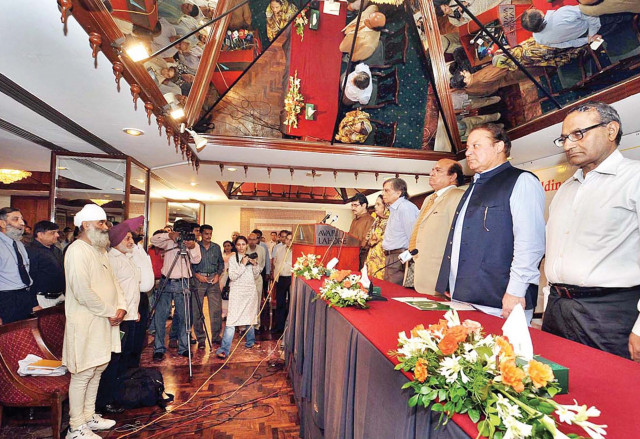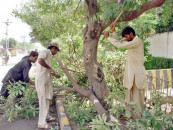Nawaz Sharif gets it right on India
He sounds unfamiliar talking about rties with India, but has the answer to what looks like Pakistan’s terminal crisis

Mr Sharif said that India and Pakistan had a common heritage of culture, that even their language and eating habits are similar. He said India should have built a motorway from the Wagha border-crossing to Calcutta and the two countries should have traded. When he constructed the motorway it was his plan to take it to Kabul via Peshawar as well as to Gwadar and Tashkent. He told the audience that Atal Behari Vajpayee had suggested announcing 1999 as the year for resolving the Kashmir dispute but his government was toppled that year. As for Kargil, he hoped that someday an independent and impartial inquiry would decide the truth about what had happened. Mr Sharif also said that instead of competing in the manufacture and acquisition of weapons, Pakistan and India should compete economically. If India buys a tank, Pakistan does the same and this comes at the expense of our social sector and infrastructure, he said.
On the issue of culture between Pakistan and India, Mr Sharif said that hating a community which had a culture similar to ours meant in effect hating a part of ourself. To this we would say that those who think of Pakistan from the outside know that the current crises faced by the country stem from its persistence in the ‘ideologically’ ingrained but unrealistic policy towards India. Pakistan’s obsession with Afghanistan — the pathology of having a ‘friendly’ government there — is nothing but a corollary of the policy of ‘strategic depth’.
The dwindling capacity of the state to cope with terrorism is owed to Pakistan’s ‘vigilance’ on the eastern border from where Pakistan’s static ‘threat matrix’ expects India to attack and occupy Pakistan because it never accepted the creation of Pakistan. The equally shocking tendency to view the Taliban and al Qaeda as ‘reconcilable’ friends of Pakistan emanates from the irreducible theory of opposition to India. Experts in the United States know that 90 per cent of anti-Americanism in Pakistan is constructed on the supposition that America has joined hands with India to subjugate or subordinate Pakistan to India’s ‘hegemonic’ drive.
When policies don’t work and strategies end in defeat or indirect reversals like an economic meltdown, it is time to change them. Darwin held that it was not survival of the fittest that defeated the less fit but the inability of the less fit to mutate. Erroneously thinking that ideology means refusal to make changes in policy, Pakistan has reached a point where it needs to change itself drastically from a warrior nation to a market state, or fade away like a failed African state. It needs a leader who commands popular support and is willing to lead without being led by cheap populism. Nawaz Sharif, usually, is not this to his followers and on TV channels, when he is rated ‘friendly in opposition’ as if a normal leader is supposed to be a pathological fire-breather. He sounds unfamiliar again when talking about relations with India, but he is the leader who has the answer to what looks like Pakistan’s terminal crisis. He realises that Pakistan’s undoing has started because of its ‘path dependency’ on the ‘security state’ model which has forgotten to live as a normal economic entity.
On this anniversary of Pakistan’s independence, the only good news has come from Punjab simply because a leader has correctly diagnosed the unease from which Pakistan has suffered for a long time. What he is recommending is not capitulation to an enemy but a normal adjustment to today’s globalised world where economic growth is the only way to survive and where there are no free lunches from superpowers needing surrogates to fight their wars.
Published in The Express Tribune, August 16th, 2011.


















COMMENTS
Comments are moderated and generally will be posted if they are on-topic and not abusive.
For more information, please see our Comments FAQ